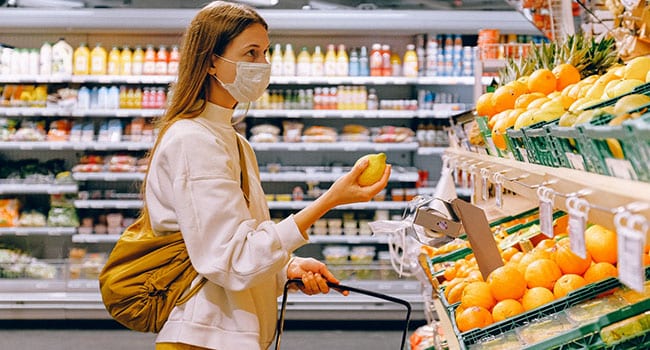 Toronto Mayor John Tory announced on June 30 that face masks would become mandatory inside enclosed public spaces in the city. This would include grocery stores, shops, malls and on public transit.
Toronto Mayor John Tory announced on June 30 that face masks would become mandatory inside enclosed public spaces in the city. This would include grocery stores, shops, malls and on public transit.
Children under the age of two and people with medical conditions that make it difficult to wear a mask would be the only exceptions.
This temporary measure was instituted on July 7. It will be re-examined when Toronto city councillors meet in late September or early October.
For some Torontonians, it was business as usual. They had been wearing masks on a regular (or fairly regular) basis and would continue to do so.
For others, wearing a mask would be a new addition to their daily routines.
I’m among them.
There were no political reasons behind my decision. No medical reasons. No soapbox-worthy reasons.
My family and I have lived in (mostly) self-isolation since early March. Other than occasional trips to grocery stores, a few takeout orders from restaurants and some walks, our home has been transformed into a pseudo-monastery.
My wife and son wore masks when they went to enclosed public spaces. We’ve all been healthy and COVID-19-free. We could be asymptomatic, of course, but for the purposes of this column, we’ll assume that’s not the case.
So why didn’t I just wear a mask?
Masks weren’t mandatory in Toronto before last week. I had the freedom to wear one, or not, during that period. I chose the latter. When masks became mandatory, I started to wear one. It’s as simple as that.
The science behind mask-wearing hasn’t been perfectly clear, either.
Many countries, including Canada, have wavered about people wearing masks during COVID-19. Many respected doctors and public health officials, including Canada’s chief public health officer Theresa Tam, have flip-flopped on this issue. It still happens to this day.
Academic studies, results and conclusions have been all over the map, too.
Some, like the New England Journal of Medicine, The Lancet and studies conducted by Texas A&M and the U.K.’s University of Cambridge, suggested the use of masks, even non-medical ones, helped reduce the amount of potentially contagious droplets. It would protect the user – and, more importantly in their view, other people – from catching these contagions that are excreted from the mouth through breathing and talking.
Then again, studies published in the Annals of Internal Medicine and Nature Medicine showed different results for those who didn’t wear N95 medical masks. (The former was recently retracted.)
The U.S.-based Centers for Disease Control and Prevention’s analysis of 10 randomized control tests in May revealed “no significant reduction in influenza transmission with the use of face masks.”
An April 26 report by Australia’s National Center for Immunization Research and Surveillance, which followed a few infected students and teachers in the New South Wales education system, suggested the “spread of COVID-19 within N.S.W. schools has been very limited.”
There are also older studies from academic publications like Epidemiology and Infection, Clinical Infectious Diseases and the Canadian Medical Association Journal expressing mixed opinions about the effectiveness of N95 masks and respirators.
Some have argued that new research and findings will regularly move the needle of opinion and analysis on timely issues and policies. That’s fair. But if there really isn’t a consensus among the understood experts and institutions, it becomes difficult to establish a consensus among the general populace.
The narrative on wearing masks during COVID-19 has therefore been inconsistent. You can either deny this or claim the greater good of society should always be an overriding principle. But when you put everything together, it really comes down to a person’s comfort level, belief system, and what he or she wants to do until instructed otherwise.
I don’t have the slightest issue wearing a face mask on a mandatory basis for a temporary period of time. My doubts are what they are but the law is the law.
Troy Media columnist and political commentator Michael Taube was a speechwriter for former prime minister Stephen Harper.
The views, opinions and positions expressed by columnists and contributors are the author’s alone. They do not inherently or expressly reflect the views, opinions and/or positions of our publication.
